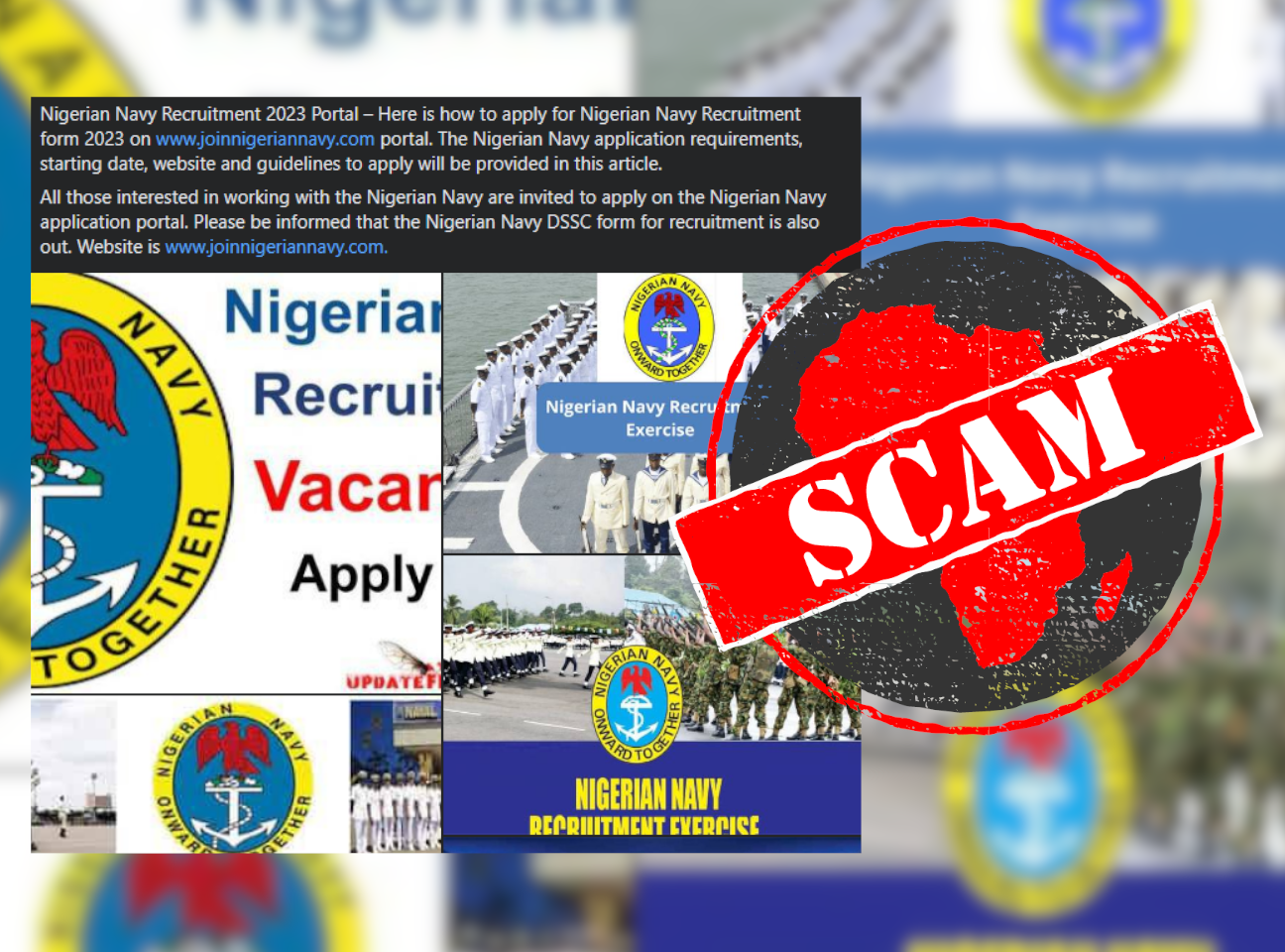IN SHORT: The Nigerian navy's 2023 recruitment window has not yet opened. A spokesperson said anyone claiming otherwise was spreading falsehoods.
The Nigerian navy is recruiting for 2023, according to posts circulating on social media.
One post on Facebook reads, in part: “All those interested in working with the Nigerian Navy are invited to apply on the Nigerian Navy application portal.”
The post goes on to say that “the Nigerian Navy DSSC form for recruitment is also out”, before giving the website where one can apply as www.joinnigeriannavy.com.
DSSC stands for Direct Short Service Commission, a programme for civilians and serving military personnel to become commissioned officers in the armed forces.
The claim has also appeared on Facebook here, here and here. But is this a legitimate recruitment by the Nigerian navy? We checked.

Ignore website ran by ‘swindlers’
On 11 September 2023, the navy shared the posts on its official X account, the social media platform previously known as Twitter, and stamped them “fake news”.
On the same day, the director of naval information, Adedotun Ayo-Vaughan, told the national daily Vanguard that the navy's vacancies could be found on its official website https://www.navy.mil.ng.
“It is important to note that the Nigerian navy did not announce any DSSC Enlistment Exercise neither is the Service conducting any form of enlistment for the Nigerian Navy officer cadre,” he said.
He described those running the questionable website as “criminals” and “swindlers”.
Despite this, the website in question continues to be shared online. The public should always verify information through the Nigeriannavy official website and its social media handles to avoid falling prey to fraudsters, Ayo-Vaughan said.
Republish our content for free
For publishers: what to do if your post is rated false
A fact-checker has rated your Facebook or Instagram post as “false”, “altered”, “partly false” or “missing context”. This could have serious consequences. What do you do?
Click on our guide for the steps you should follow.
Publishers guideAfrica Check teams up with Facebook
Africa Check is a partner in Meta's third-party fact-checking programme to help stop the spread of false information on social media.
The content we rate as “false” will be downgraded on Facebook and Instagram. This means fewer people will see it.
You can also help identify false information on Facebook. This guide explains how.




Add new comment